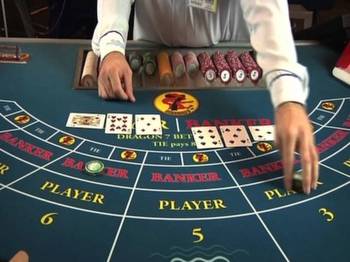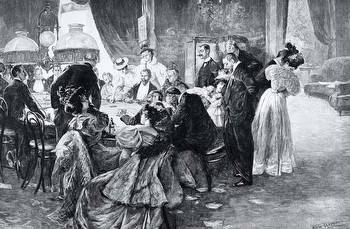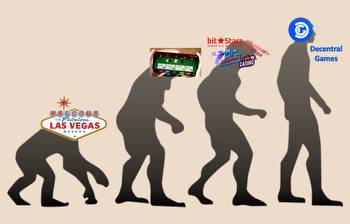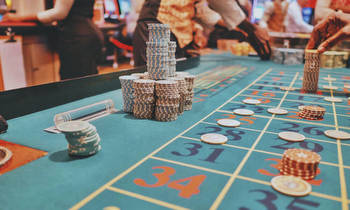Journeying Through History: The Evolution of Casinos Over Time

Change is a constant phenomenon; it has always existed in nature and will continue to. While humans have consistently gambled since ancient times, and places like China already had gambling establishments, the first casino graced the world in the 17th century.
The casino was quite different from the gambling organizations the world had seen before; it entered the scene with a different purpose. Quite ironically, the government established the first casino to control gambling. In other words, the first casino, established in Italy in 1638, was a government-owned-and-controlled gambling house in the streets of Venice called The Ridotto.
As centuries passed and technology advanced, casinos became more popular and accepted worldwide. Let’s explore the evolution of casinos over time below.
The gambling industry has changed significantly in the 21st century with the introduction of online and crypto casinos. Virtual casinos allow you to gamble from anywhere worldwide without meeting your opponents face-to-face.
Various platforms that offer crypto casino online games and gambling experiences have improved the gambling scene by offering gamblers anonymity and speed as they play classic casino games. It offers gamblers the flexibility of spending cryptocurrencies like Bitcoins and Ethereum instead of traditional currencies. Crypto transactions are processed quickly, letting players instantly deposit and withdraw funds. The anonymity of crypto wallets also appeals to players who value privacy.
Additionally, online and crypto casinos make gambling games like poker, roulette, and slots more easily accessible. Players can easily access casino sites anytime, as long as they’re connected to the internet. The availability and convenience have made online gambling incredibly popular worldwide.
While traditional land-based casinos are still thriving, virtual casinos have undoubtedly changed how people gamble in the modern age. Their popularity will likely keep growing as gambling merges with new technologies like blockchain and VR.
Gambling has been around for millennia in various forms. Long before the first casinos emerged, ancient civilizations wagered on games of chance and skill. However, it took centuries of societal and technological changes before gambling was organized into more formal casino settings.
History tells us that gambling existed in many early societies like ancient China, Egypt, and Rome. Dice, an early gambling equipment, was used as far back as 3000 BC. Ancient Greeks and Romans gambled on animal fights and gladiator contests, while medieval Europeans wagered on jousts, horse races, and primitive card and dice games.
These early gambling activities were often tied to religious rituals and festivals. They were viewed as a form of divination to decipher the gods’ favor. Over time, gambling evolved into a leisure activity and source of profit separate from spiritual contexts. But up through the 17th century, there were no organized gambling houses.
The origins of the first public casino can be traced to Italy in the 1600s. In 1638, the Great Council of Venice established the Ridotto, a controlled gambling house during the carnival season.
The Ridotto was established to control illegal gambling that had become the order of the day during this period in the city. Guests had to pay an entry fee to socialize, listen to music, and play dice and card games in an elegant environment. Only people from the upper class were allowed in at the time.
The Ridotto and other private gambling clubs grew in popularity across Europe over the next century. Gambling among the elite was an accepted diversion by the 1700s. Yet it remained out of reach for most people who couldn’t afford the clubs’ fees and stakes.
Things changed in the 19th century as public casinos were accessible to all social classes. Germany’s first full-scale casino opened in 1837, while Monaco’s famous land-based casino debuted in 1863. In the United States, the first casino appeared in New Orleans in 1827.
New gambling inventions like early slot machines, roulette wheels, and card shuffling machines boosted casinos at this time. Casino design was refined to provide lavish environments that encouraged spending.
By the early 1900s, casinos attracted middle and working-class patrons alongside the wealthy. On March 19, 1931, Nevada legalized gambling statewide, positioning Las Vegas as America’s casino capital in the coming decades. Continuous innovations like video slots, progressive jackpots, and deluxe resort amenities drove the casino industry’s explosive growth throughout the 20th century.
From ancient civilizations, gambling has maintained an enduring appeal across cultures. Yet it took centuries of societal shifts before casinos emerged as formal institutions. Early casinos catered to elites but later opened to the masses.
Virtual and crypto casinos now offer experiences that early gamblers could scarcely imagine. But they are simply the latest incarnations of a centuries-old human pursuit that will likely thrive far into the future.






































